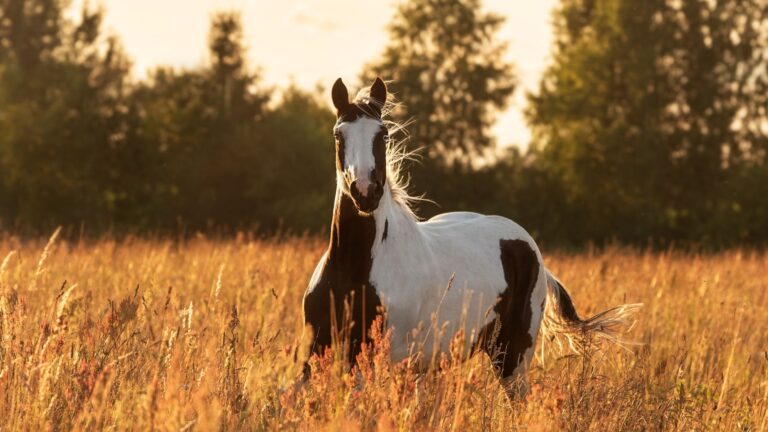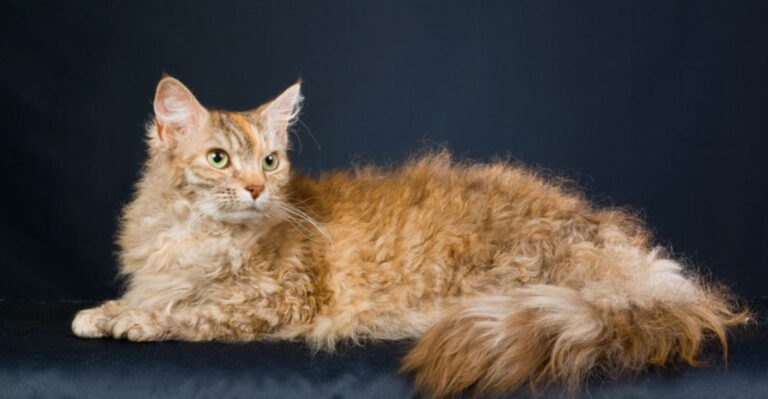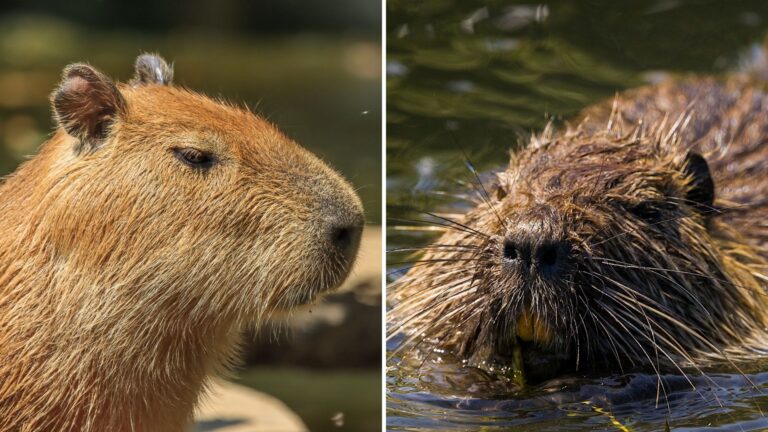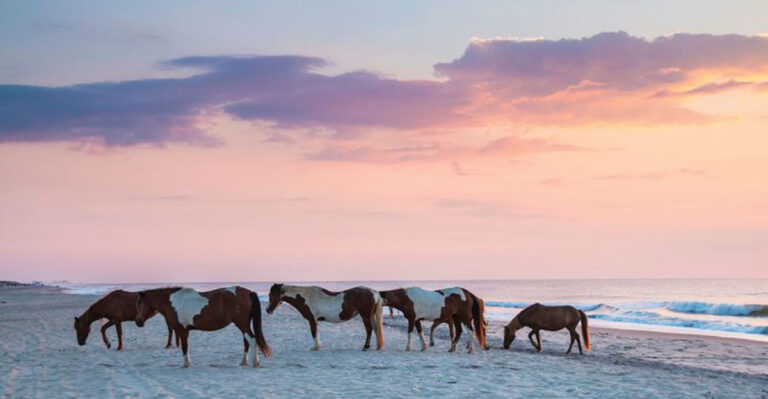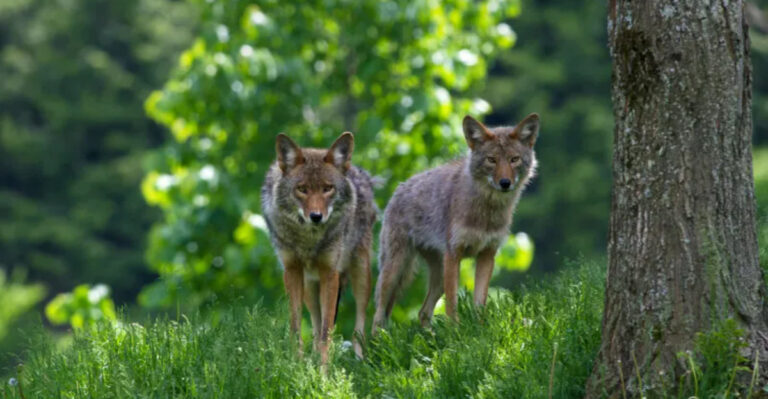17 Dog Breeds Banned From Breeding: Here’s Why They Can’t Reproduce
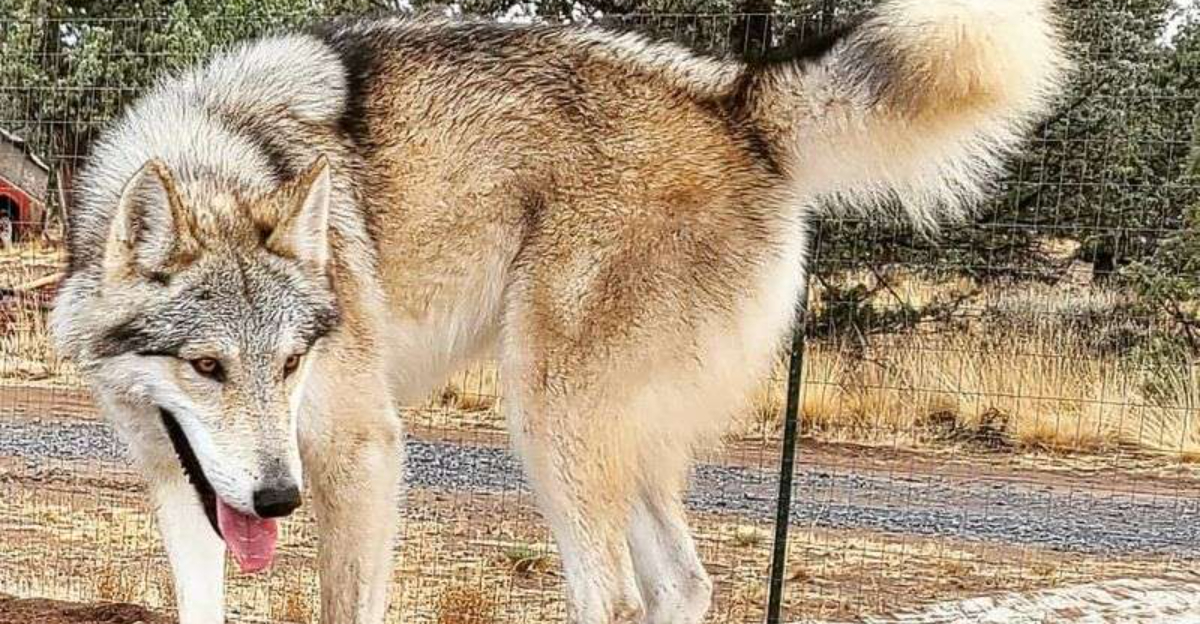
Dog breeding regulations can often vary across the globe, with certain breeds being banned for various reasons. These reasons range from concerns over aggression, safety, and potential danger to the public.
By understanding the historical, behavioral, and social reasons behind these bans, the aim is to shed light on the complex dynamics of dog breeding.
1. Tibetan Mastiff
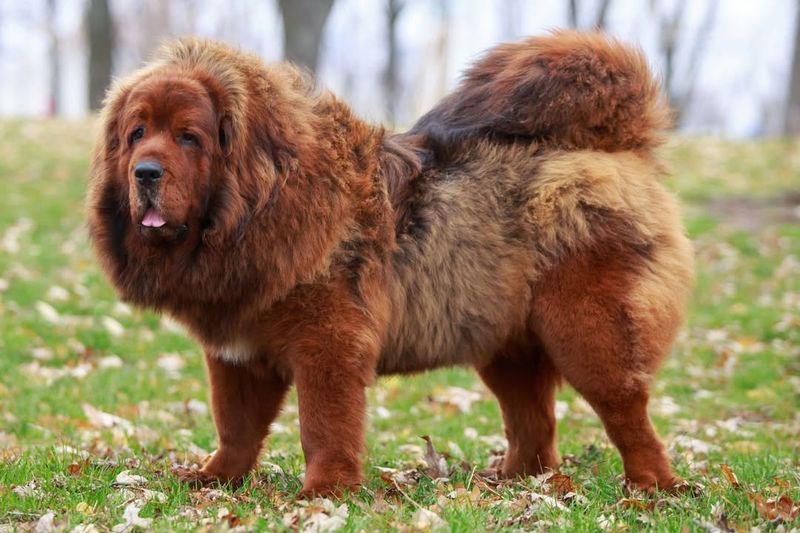
The Tibetan Mastiff is a large, powerful dog originally bred to protect livestock in the Himalayan region. Due to its size, strength, and protective nature, the breed has been banned in some regions because it can be dangerous if not properly trained and socialized.
Its intimidating appearance and aggressive tendencies make it unsuitable for some owners, leading to restrictions on breeding in certain areas.
2. Alaskan Malamute
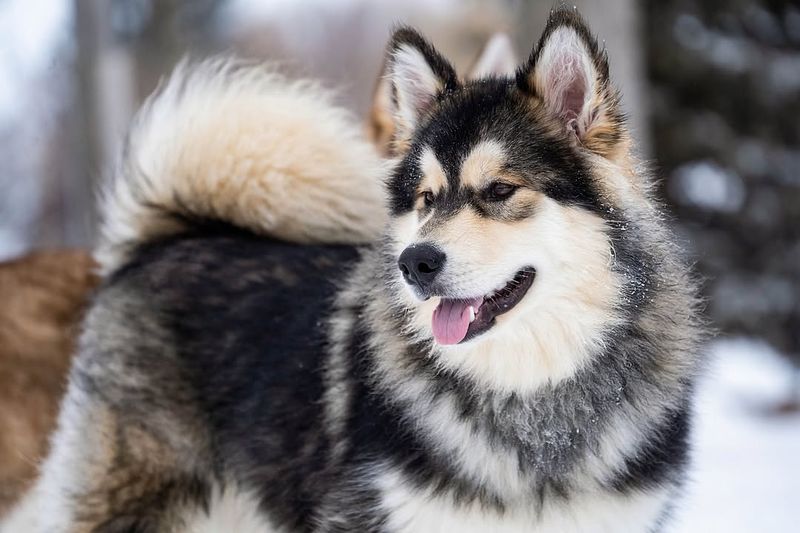
While the Alaskan Malamute is a beloved working dog known for its strength and endurance, its size and power have led to breeding restrictions in some places.
The breed is often banned from breeding due to its natural hunting and territorial instincts, which can make it aggressive toward other animals and difficult for inexperienced owners to handle.
These dogs require a lot of space and exercise to thrive, and without proper training, they can pose a risk to other pets and people.
3. Pit Bull Terrier
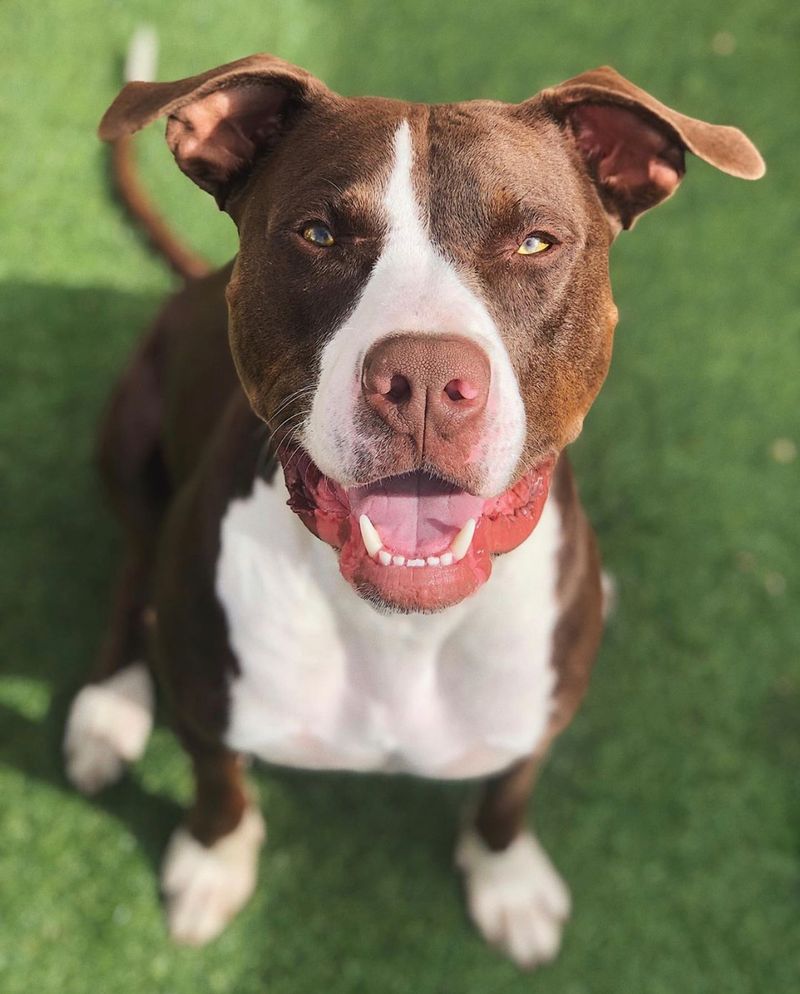
Pit Bull Terriers are often at the center of breed-specific legislation (BSL) due to their history of being involved in aggressive incidents.
Despite their loving and loyal nature when properly trained and socialized, their muscular build and strong jaws can make them dangerous if not handled responsibly.
Many communities restrict or ban the breeding of Pit Bulls to prevent potential attacks, though it’s important to note that individual temperament varies significantly. Responsible ownership and early training can often mitigate these concerns.
4. Rottweiler
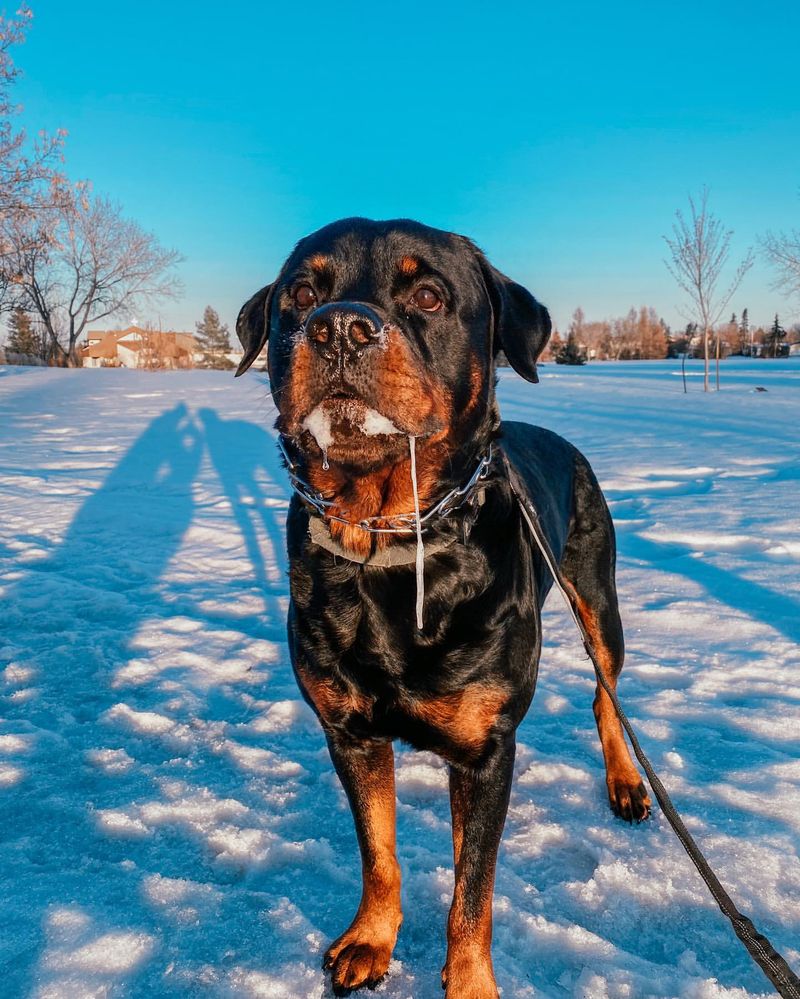
Rottweilers are known for their loyalty and protective instincts, often being used as working dogs in police and military roles. However, their protective nature can sometimes translate into aggression if not trained and socialized properly.
As a result, some regions restrict or ban breeding Rottweilers due to concerns about their potential for aggression.
When raised in a responsible and structured environment, Rottweilers can make wonderful family pets, but they require firm training and socialization from an early age.
5. Doberman Pinscher
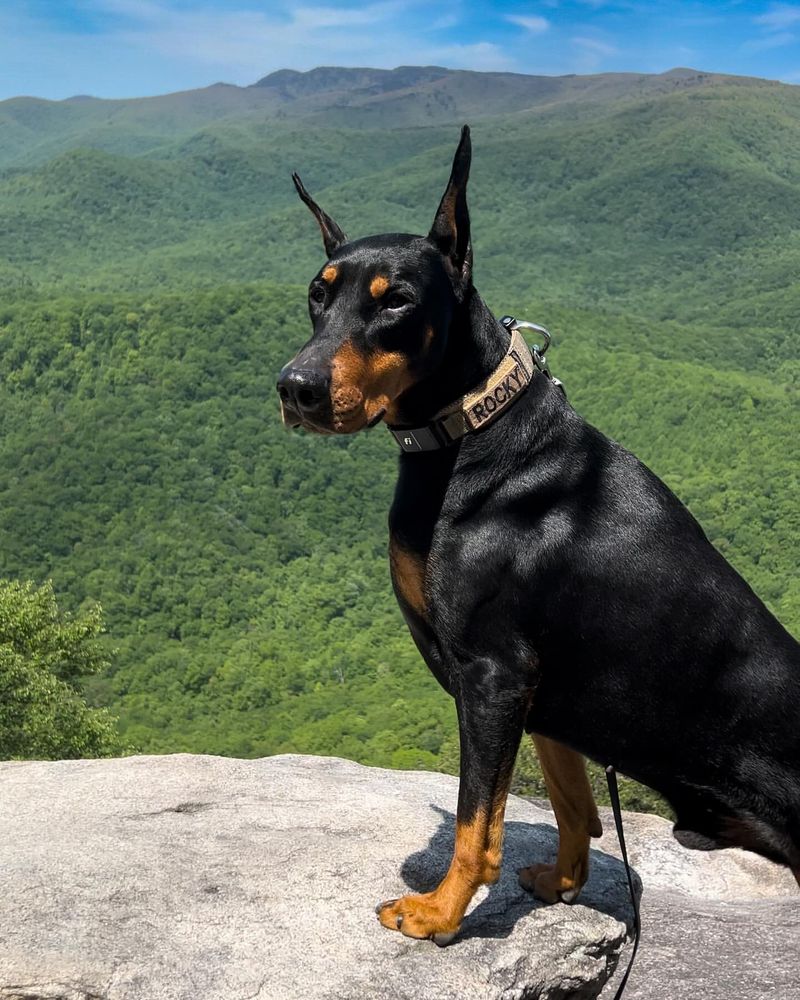
Doberman Pinschers are intelligent, energetic, and highly loyal dogs, often used in police and security work due to their alertness and protective nature. However, their intense guarding instincts can lead to aggression if not properly managed.
In some areas, Dobermans are subject to restrictions due to their size and power, especially if they are not properly trained or socialized.
With proper care and guidance, Dobermans can be affectionate companions, but they do require experienced handlers to ensure they remain well-behaved.
6. Dogo Argentino
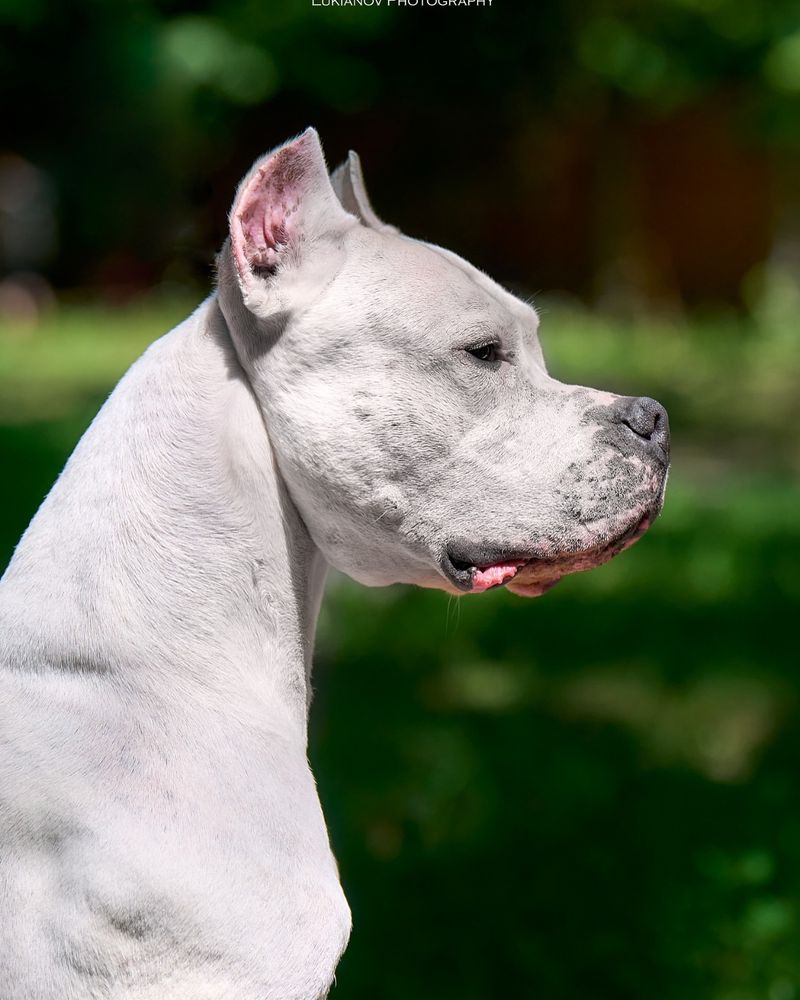
The Dogo Argentino is a powerful and athletic breed originally bred for big-game hunting, and they have strong protective instincts. Their size, strength, and sometimes aggressive tendencies have led to breeding restrictions in certain areas.
While they can be loyal and loving companions when properly socialized, their natural guarding instincts make them potentially dangerous if not trained and managed properly.
This breed requires an experienced owner who can provide consistent leadership and positive reinforcement.
7. Presa Canario
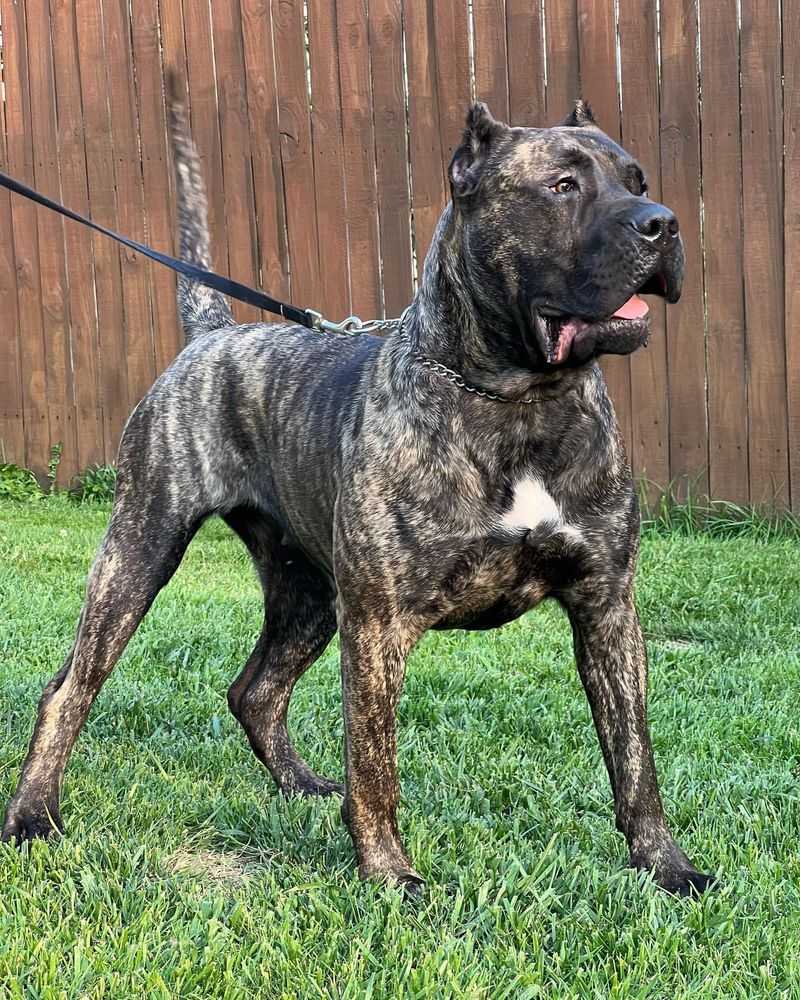
Presa Canarios are large, muscular dogs originally bred for guarding livestock. Their strong, protective nature and ability to be dominant make them a challenging breed for inexperienced owners.
Due to their power and potential for aggression if not properly trained, Presa Canarios are banned or restricted in certain regions.
When given the proper training, socialization, and exercise, they can be loyal, affectionate family pets, but they require a confident owner who can establish clear boundaries and rules.
8. Japanese Tosa
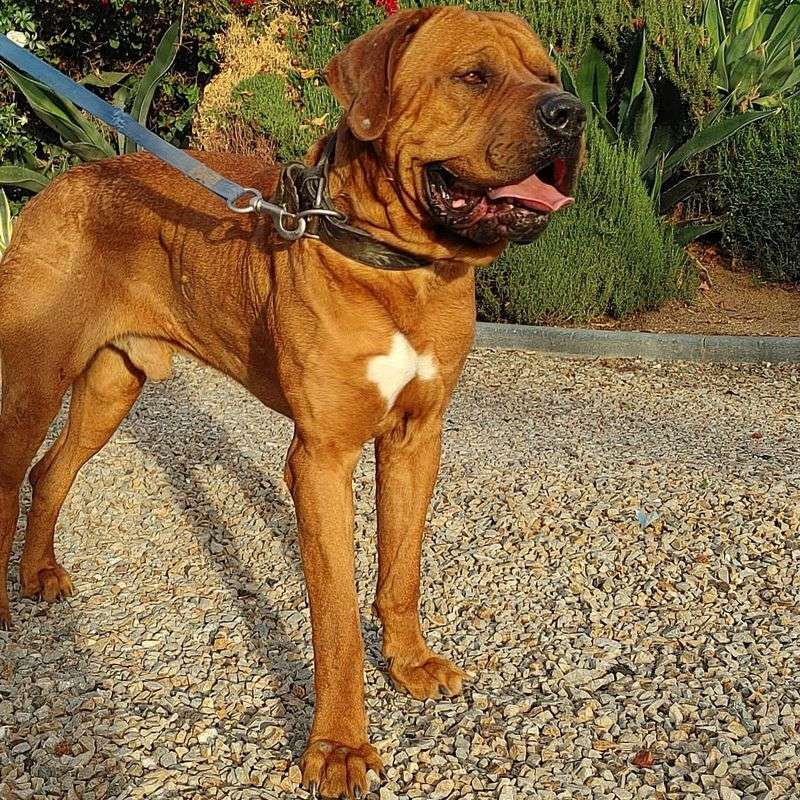
The Japanese Tosa is a rare and powerful breed originally developed for dog fighting. Their history and size make them potentially dangerous if not properly trained and socialized, and many places have enacted breed-specific legislation (BSL) to restrict or ban their breeding.
While the Japanese Tosa can be calm and obedient with proper training, their powerful build and guarding instincts require an experienced owner who can handle their strength and ensure they are well-socialized with people and other animals.
9. Fila Brasileiro
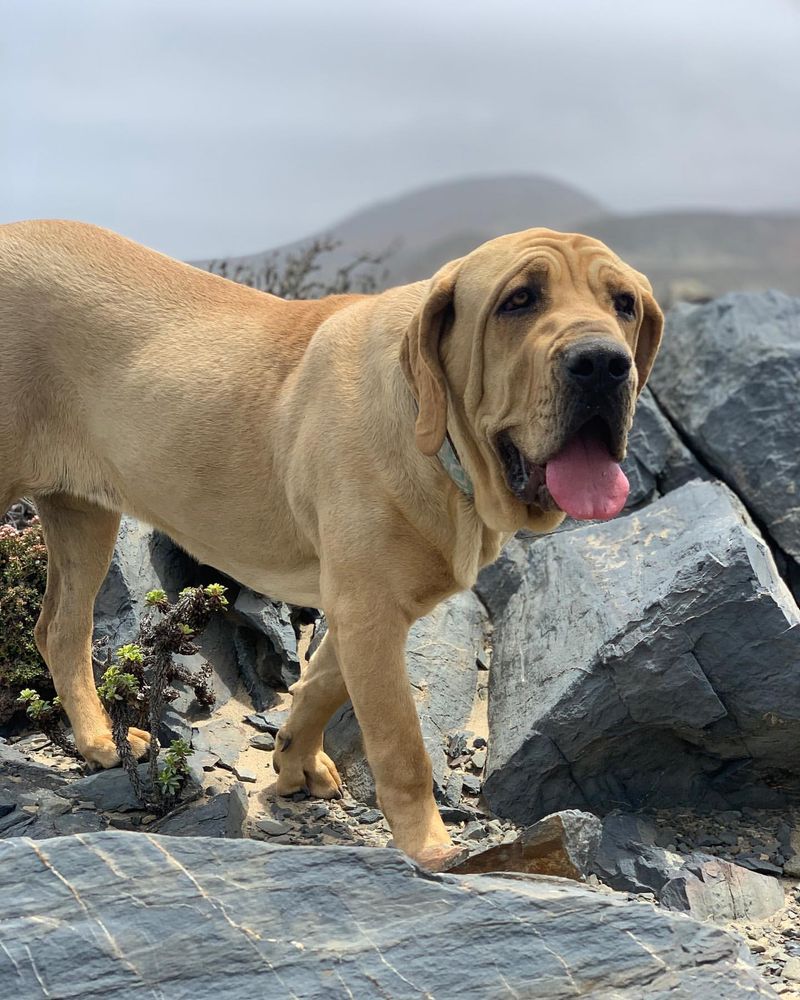
Fila Brasileiros, also known as Brazilian Mastiffs, are large, protective dogs with an innate instinct to guard their family and property. Their natural wariness of strangers and loyalty to their family can sometimes lead to aggression if not properly trained.
Due to their strong protective nature, many places restrict or ban the breeding of this breed. Filas require an experienced owner who can manage their natural guarding instincts and provide proper training and socialization.
10. Chow Chow
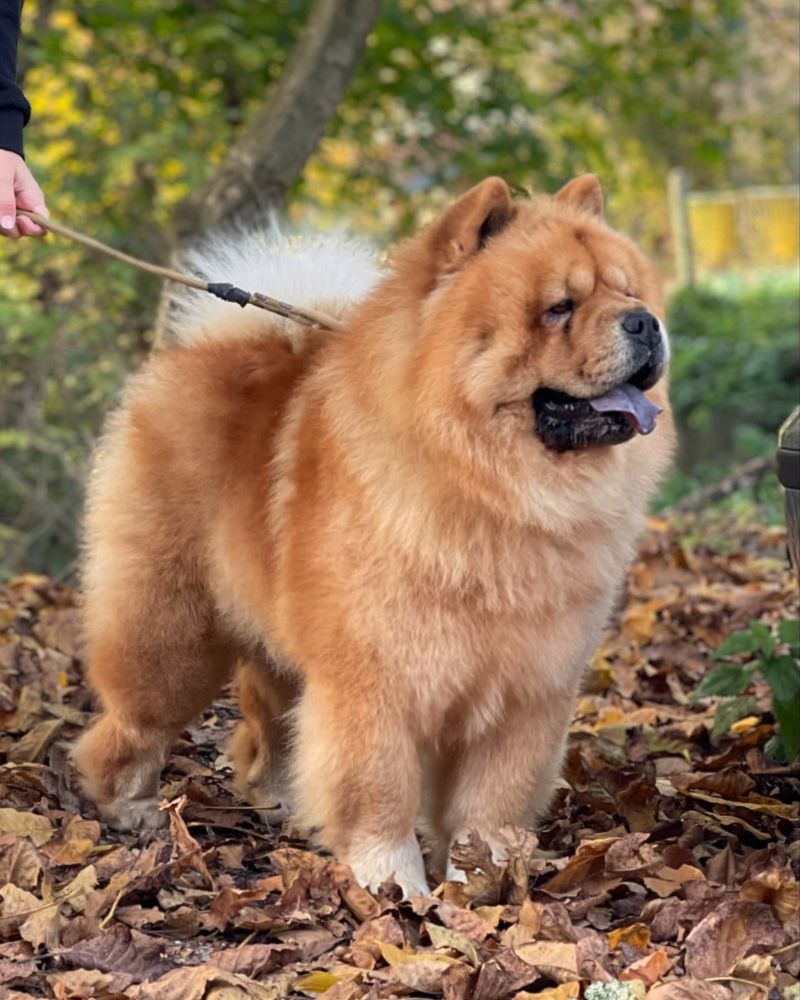
Chow Chows are known for their independence, loyalty, and distinctive lion-like appearance. They are often aloof with strangers and can be territorial, which has led to concerns about aggression in some areas.
Due to their strong-willed and sometimes standoffish nature, Chow Chows are often banned or restricted in certain regions. They require an experienced owner who can provide firm, consistent training and socialization to ensure they develop into well-mannered companions.
11. Cane Corso
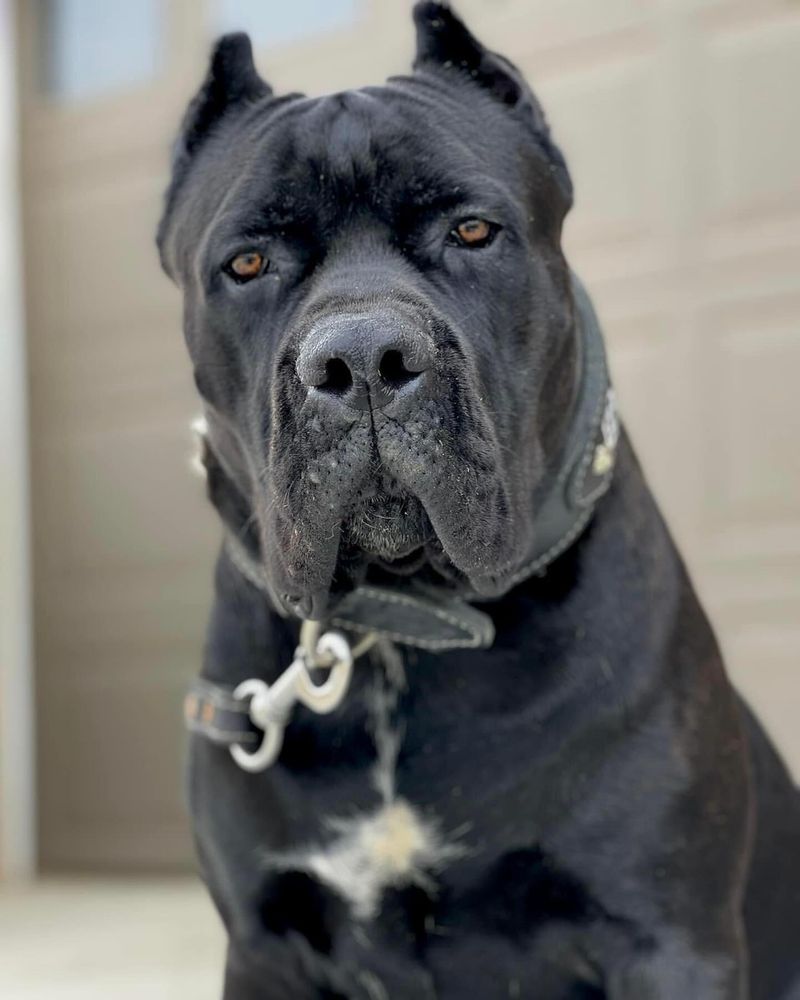
Cane Corsos are large, muscular dogs originally bred for guarding and protection. They are highly protective and loyal to their family, but their strength and assertive nature can make them potentially dangerous if not properly trained.
Because of their power and guarding instincts, Cane Corsos are often subject to breeding restrictions in some regions. They require an experienced owner who can provide strong leadership and positive reinforcement to ensure they are well-socialized and well-behaved.
12. Wolf-Dog Hybrids
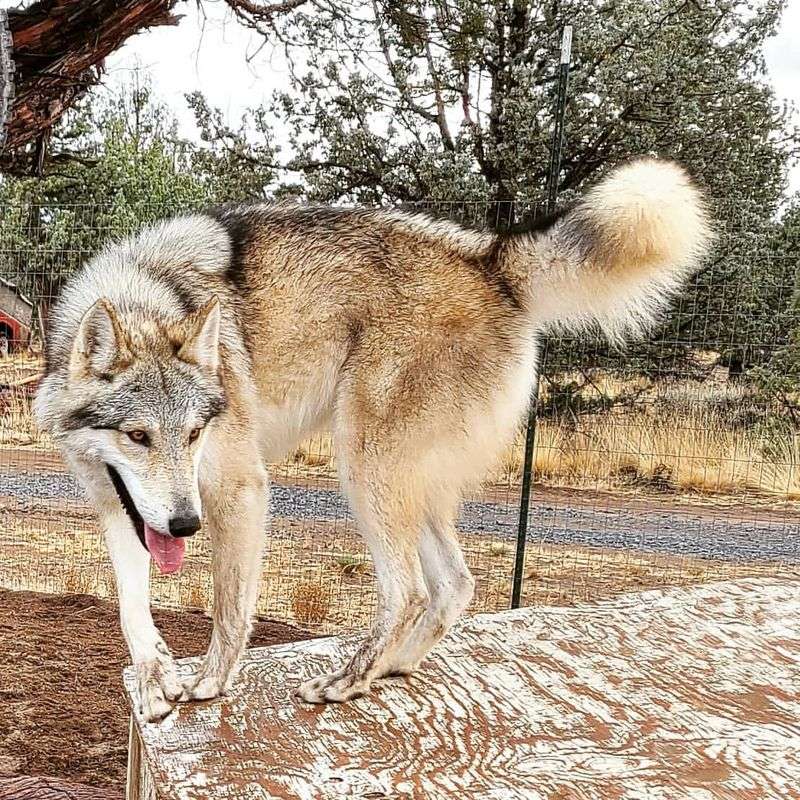
Wolf-Dog Hybrids, which are a cross between domestic dogs and wolves, present unique challenges as pets. These animals have wild instincts that can make them unpredictable, and their strength and independence make them difficult to handle.
As a result, many places have laws restricting or banning the breeding of wolf-dog hybrids. They require an experienced owner who can manage their unique behaviors and needs. In some areas, they are considered dangerous, and their hybrid status can complicate legal ownership.
13. American Bulldog
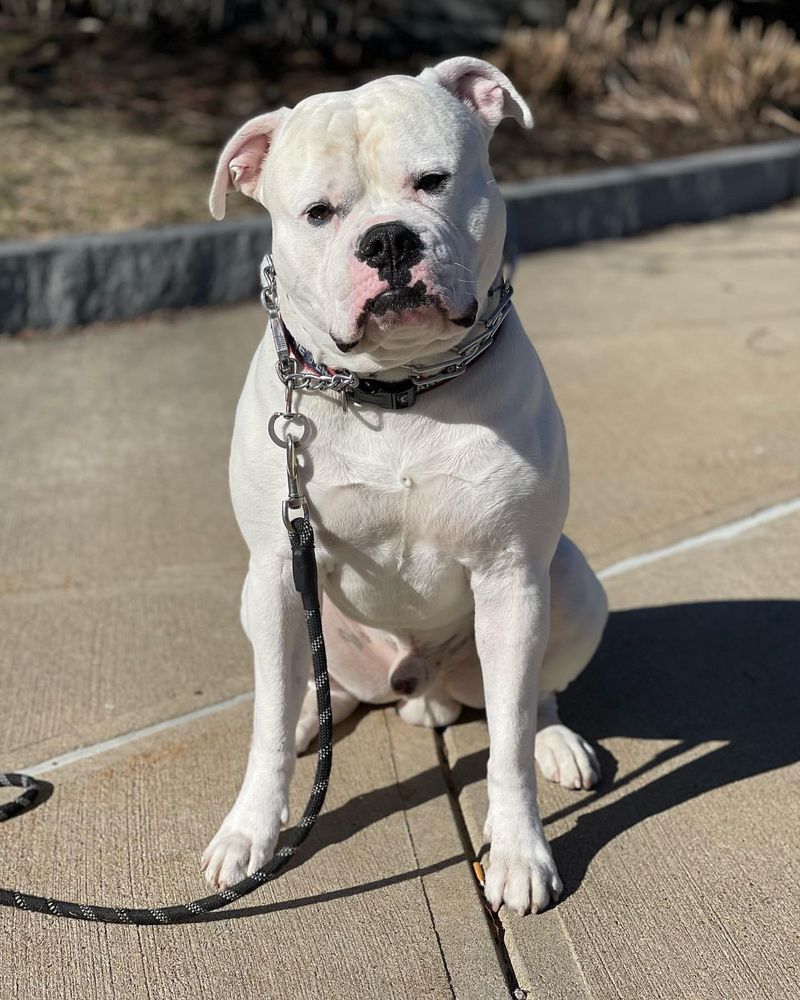
The American Bulldog is a strong, muscular breed known for its loyalty and protective nature. While generally friendly and affectionate with its family, it can become aggressive if not properly socialized or trained.
Some regions restrict or ban the breeding of American Bulldogs due to concerns over their size and strength, particularly in environments with young children or other pets.
With proper training and socialization, American Bulldogs can make excellent family pets, but they require confident and experienced owners.
14. Boerboel
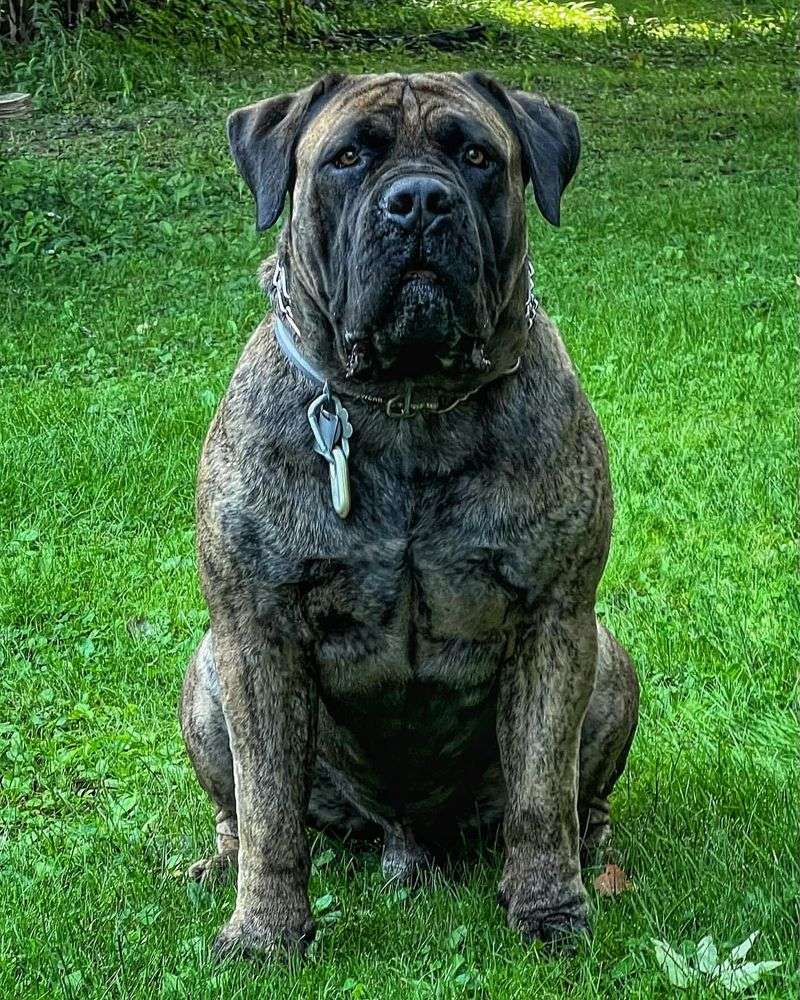
Boerboels are large, powerful dogs originally bred for guarding livestock in South Africa. Their protective instincts and strength can make them potentially dangerous if not properly trained and socialized.
Due to their size and strength, many places restrict or ban the breeding of Boerboels. They require an experienced owner who can provide consistent training, socialization, and mental stimulation to ensure they are well-behaved and integrated into the family.
15. Kangal Shepherd Dog
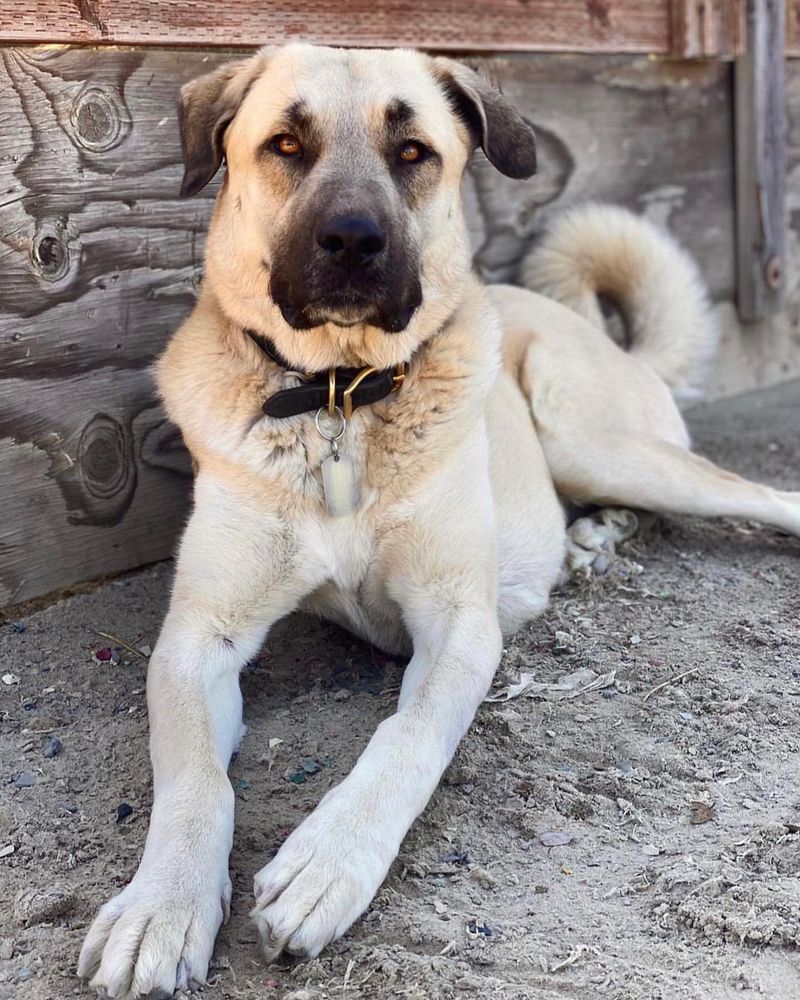
The Kangal Shepherd Dog is a large, protective breed known for its ability to guard livestock. Its natural instincts and immense strength make it a highly effective protector, but also a challenging breed for less experienced owners.
Due to its size and protective nature, the Kangal is often banned or restricted in certain regions. These dogs require firm leadership, proper socialization, and training to ensure they can be safely managed, especially in a family setting.
16. Neapolitan Mastiff
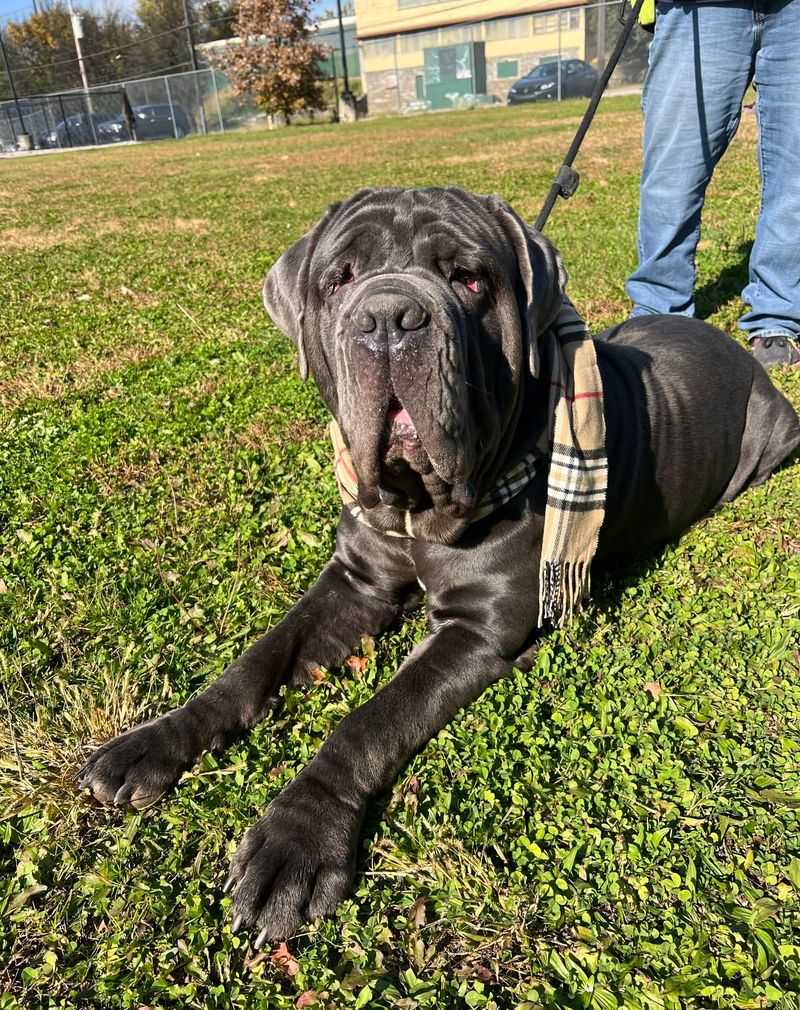
Neapolitan Mastiffs are large, imposing dogs known for their protective nature and distinctive wrinkled appearance. While they are generally gentle with their families, their size, strength, and sometimes aggressive tendencies make them challenging to handle.
Because of their potential for aggression, many areas restrict or ban the breeding of Neapolitan Mastiffs. They require an experienced owner who can provide firm leadership, training, and early socialization to ensure they are well-behaved and safe.
17. Shar-Pei
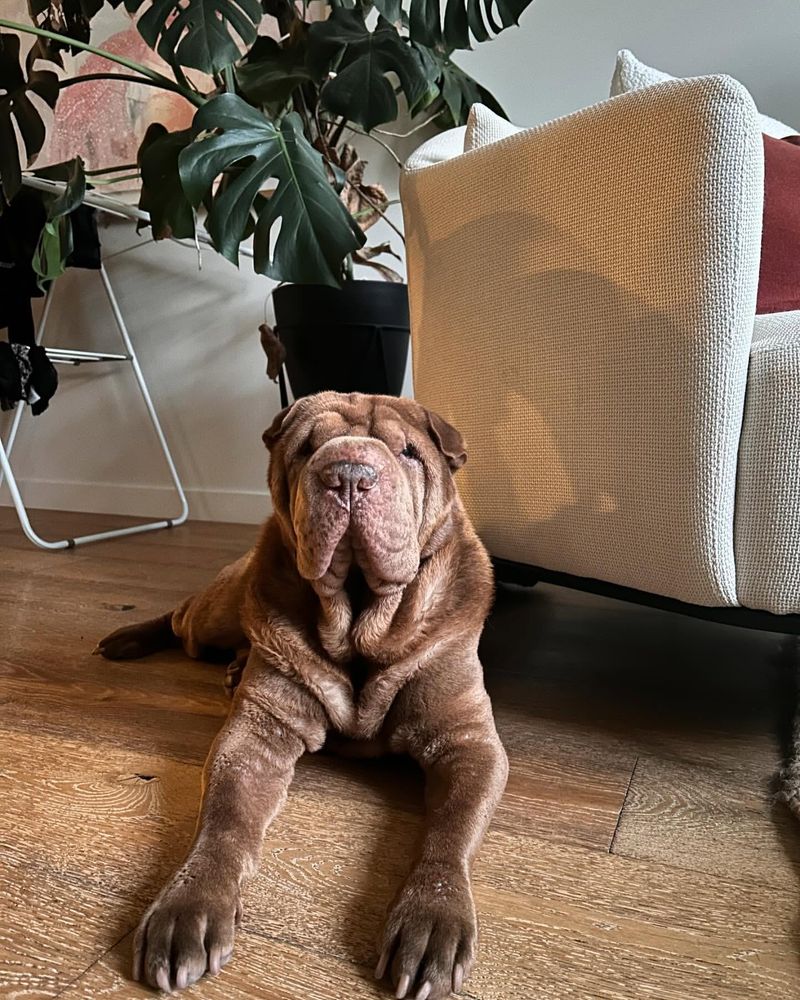
The Shar-Pei is a unique breed known for its wrinkled skin and calm, independent nature. While generally gentle with their families, Shar-Peis can be territorial and sometimes aggressive, especially toward other animals.
Their natural guarding instincts have led to restrictions on breeding in some areas, as their behavior can sometimes be unpredictable. With the right training and socialization, Shar-Peis can be loyal and affectionate companions, but they require an experienced owner who understands their independent nature.

